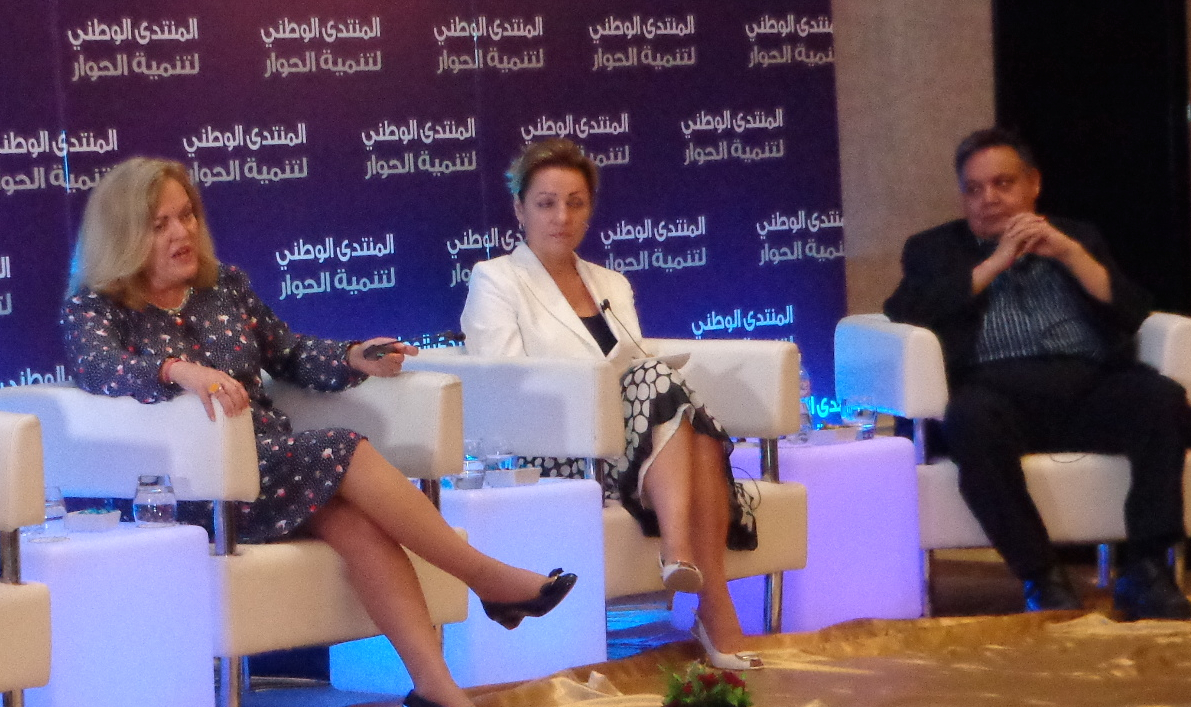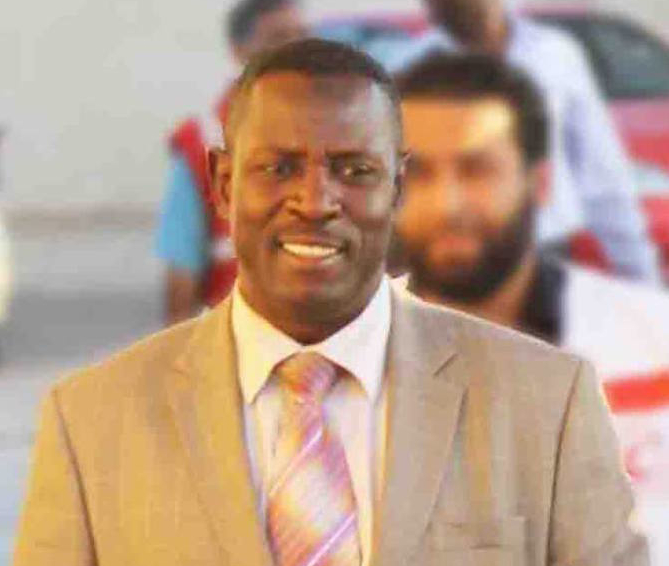Libya Herald reporters.

Tunis, 6 September 2015:
There have been testy exchanges involving the US and EU ambassadors and Libyan participants at a key . . .[restrict]Tunis conference looking at the shape of Libya after the formation of a Government of National Accord.
Both were asked how in two elections political Islamists had been rejected by voters, yet the international community had ignored the outcome and was seeking to include “people who have been killing us in the streets” in the dialogue.
The criticism of US envoy Deborah Jones and her EU counterpart Natalya Apostolova came in particular from a fellow guest speaker in the last session of two-day National Dialogue Development Forum. Mahmoud Shammam, owner of Buwabat Alwasat and former information minister under he National Transitional Council, was scathing in his criticism of the performance of the international community.
In a direct reference to the controversial Abdulrahman Sewehli who is now a member of the GNC’s Libya Dialogue team, Shammam said the UN Security Council had been given a list of people who threatened the dialogue [which included Sewehli]. “So how could someone on this list be a part of the Dialogue? The message this sends is that you can make all the trouble you like and you won’t be held accountable”.
Shamman also said that the outside world was ignoring the fighting in Benghazi. “We have seen the second city in the country being destroyed by terrorists. The international community did not send so much as a blanket to Benghazi and we have tens of thousands of internal refugees”.
Shammam said he backed the GNA, adding however that it was “a necessity, not a choice”. It would be a crisis-management government not a crisis-solving government and he said he was concerned that there was no road map.
Jones was clearly vexed when the rapporteur invited her to respond to the question: “Is the US a supporter of anarchy or peace?”
“The view is false. There is a lot of false information without facts. It is a ridiculous assertion,” she replied.
Responding to doubts as to exactly what the international community would do to back the GNA, Jones said: “Let’s be honest when it comes to the militias, it is a huge problem that none of the post-revolution governments have been able to deal with, or even attempted to do”.
She said that none of these governments had wanted international intervention and, anyway, there was no intention on the part of the US to “put boots on the ground”. But America, along with the EU, was ready and waiting to support the new government. “But we cannot partner with people unless the government knows who the enemy is. It cannot be that we can be pulled into a political battle”.
Jones also sought to counter the argument that the democratic will of Libyan voters deserved unqualified support. Elections, she explained, were not an end in themselves, not a destination. Libya had proven itself excellent at running elections. But it had not concerned itself with the equally necessary business of governance.
She recalled that a Libyan acquaintance had told her that under Qaddafi, he and his friends used to watch to TV news to find out what was going to happen next. After the dictator’s ouster they then found themselves still watching the TV to find out who was going to come and take care of them next.
Jones insisted that the big difference between past governments and the new GNA was that it would have a roadmap and it would also have the support of the international community in putting in place institutions that were essential for the emergence of transparent and good governance.
There was concern from the audience that the GNA would actually be secure in Tripoli. There were suggestions that maybe a Baghdad-style Green Zone ought to be created and disbelief that the militias would quit the capital, as they are required to do, under the current draft of the Political Accord.
“I am not trying to minimise the security issue” said Jones, who rejected the idea of a Green Zone, “but before we can build security, we need to build a framework so that those moderate people in the militias can say that they will go with it”.
She admitted that not all the militias were going to buy the new government. “There will be that two to five percent [who will reject it] who are going to have to be dealt with.”
Only slightly less annoyed than her US opposite number, Apostolova said that of course the EU cared about Libya. Malta was only 300 kilometres from the Libyan coast. The EU had tried in the past to help with border controls and policing, putting into Tripoli it largest ever European Border Assistance Mission (EUBAM). Some 300 personnel had spent a year in the capital but events on the ground had prevented them from doing their work. Moreover, such was the confused governmental structure that EUBAM was never sure with whom it was working, she claimed.
Speaking of the ongoing conflict, the general exhaustion, the lack of social welfare and the widespread electricity cuts, Apostelova admitted: “I do not envy the people who are going to be in the new consensus government, because the people are going to expect a lot of them. That is why we [in the EU] are coordinating our support.”
![]() [/restrict]
[/restrict]









